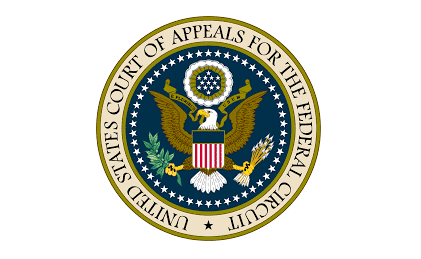How to Protect Your Invention
Before The Patent Application
To protect an invention for yourself or your employer, it is important to take a few simple steps. We provide some concise suggestions below that we hope will be helpful. This information is very generalized, and may not apply in your specific circumstances. Therefore, it is important to consult with your patent attorney at an early stage in the invention process.
The United States now awards patents to the first inventor to file a patent application on an invention. To be patentable, an invention must be novel and non-obvious. Publication or disclosure of an invention may jeopardize the patentability of an invention. With these thoughts in mind we first recommend that you thoroughly document your invention, preferably in an inventor’s notebook, describing both the conception of the invention and the efforts that you undertake to reduce the invention to practice (i.e., make one). Keep dated photographs and receipts as a part of this documentation. Have all of the inventors sign and date the notebook and other materials, and also have them signed and dated by a witness who understands the invention.
It is preferable to maintain your invention in absolute confidence until you have filed your patent application. In the United States, inventors have a one year grace period from the date on which the inventor publicly discloses the invention in which to file a US patent application. Generally, public disclosure occurs on the first date on which products embodying or produced by the invention are publicly used, offered for sale, or described in a printed publication.
Many foreign countries require that an invention be absolutely novel. This means that your invention or products embodying or produced by your invention must not have been publicly used, sold, or described in a printed publication anywhere in the world prior to the date that the patent application is filed in such foreign country. Otherwise, a patent will not be granted in that foreign country. However, the U.S. has entered into treaties under which most foreign countries recognize filing priority based on the filing of a US patent application.
Employment contracts often include a provision concerning the ownership of patent rights. Even without an employment agreement, an employer may have “shop rights” in an invention. If an employee is hired to invent, then the employment contract is often interpreted to assign the invention to the employer. Consider carefully the contents of your employment contract and, if you employ anyone, have them execute an employment contract stating that the employee will assign inventions to you or your company. When you disclose your invention to someone who is not employed by your company (a third party), have a written agreement that specifies what the third party can and cannot do with information about your invention. For example, before you disclose your invention to a third party for any reason, have them first sign an agreement obligating them to maintain everything that you disclose to them as confidential, and to use the information only for the purpose for which you are making the disclosure.
A common misconception is that a patent protects its owner from infringing a patent belonging to someone else. This is not so. A patent gives you the right to prevent others from making, using or selling the invention described in the patent, but it does not give you the right to make or use the invention. For example, if your invention is an improvement on a patented widget machine, you may obtain a patent on the improvement, but your improvement may still be covered by the original widget machine patent. In such a case, you must first obtain permission from the widget machine patent owner before making, using, or selling a widget machine containing your improvement. Likewise, the widget machine patent owner cannot make, use, or sell a widget machine containing your improvement without first obtaining your permission.
The law requires all persons involved in obtaining a patent to abide by a very strict duty of disclosure in dealing with the United States Patent and Trademark Office (USPTO). Failure to adhere to this strict duty of disclosure is likely to affect the validity of any patent that may issue. To comply with this duty, provide us with any information that is related to your invention. We will then disclose all material information to the USPTO during the application process. Material information includes previously issued patents, magazine articles, product literature, uses of the invention, if any, and other such relevant information. The duty to disclose this information continues up until the date that the patent issues.
Simple Steps to Protect Your Invention
More Resources
Learn more about patents with these helpful links
Our Patent Prosecution and Counseling Services
Schedule a Discussion with Our Patent Attorneys
Related Posts
LUEDEKA NEELY RETURNS A BIG WIN AT THE FEDERAL CIRCUIT
Earlier this month, the Federal Circuit announced a precedential decision heavily in favor of Spireon, Inc. thanks to the hard work of Luedeka Neely attorneys Michael Bradford and Mark Crockett. The court vacated and remanded a decision of the Trademark Trial and...
Summaries of Recent Patent and Trademark Trial and Appeal Board Cases
Luedeka Neely attorneys provide analysis of recent precedential cases from the Patent Trial and Appeal Board (PTAB) and Trademark Trial and Appeal Board (TTAB) for the period of September - October 2022. NXP USA, Inc. v. Impinj, Inc., IPR2021-01556, Paper 13...
Summaries of Recent IP Law Cases
Luedeka Neely attorneys provide analysis of recent precedential intellectual property law cases for the period of August - September 2022. In re Killian (Fed. Cir. August 23, 2022) - Court of Appeals for the Federal Circuit (CAFC)Appeal from Patent Trial and Appeal...
